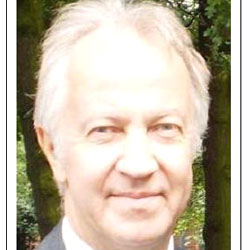Special Report: Rio Police “Taking Back the Slums” Ahead of 2014 World Cup & 2016 Olympics
March 19, 2013
By the time the Olympic movement flies in to Rio de Janeiro for the 2016 summer Games the favelas which have scarred the city should be history.
The prospect for a community police project was outlined here in Qatar by Jorge Barbosa Pontes, the international security relations manager for Rio 2016.
Barbosa was putting a positive spin on a project clouded last week when a policeman was jailed for six years for accepting bribes from a drugs dealer.
Security is the priority issue for any major event organiser and questions have been raised about the Rio shanty towns with respect to the hostings of this year’s Confederations Cup, next year’s World Cup and the 2016 Olympics.
Barbosa, addressing a panel at the ICSS Securing Sport conference, described the challenge as not only creating a perception of safety for visitors but ensuring it as a fact. In Rio’s case this is being developed by a project, launched five years ago, entitled UPP (Unidade de Polícia Pacificadora).
He said: Over the last 40 years we lost a lot of ground to the favelas, an unfortunate social situation. But this programme being carried out by the state police of Rio is really outstanding. They are taking back the slums, the favelas. It’s a true transformation.
“The first step is to assemble a police unit at the entrance to the favelas and then add in the hospitals and schools that these societies deserves.
“We no longer mention favelas. We erased this word – and it’s not just political correctness.
“For example, the drug trafficking has been reduced and the armed drug dealers are not there any more with their guns and rifles. So, little by little, we are taking back this very important space and even the tourists can go there again.
“It’s unbelievable to see the changes we’re experiencing there.”
Not that everything has proceded smoothly.
The commander of a UPP unit in the north of Rio, Adjaldo Luiz Mercy Junior, was jailed for six years last week for a drugs-related offence.
Adjaldo was convicted of having been paid $15,000-a-week by a notorious trafficker, Sandro Luis de Paula, known as The Fish.
Keir Radnedge has been covering football worldwide for more than 40 years, writing 33 books, from tournament guides to comprehensive encyclopedias, aimed at all ages.
His journalism career included The Daily Mail for 20 years as well as The Guardian and other national newspapers and magazines in the UK and around the world. He is a former editor, and remains a lead columnist, with World Soccer, generally recognised as the premier English language magazine on global football.
In addition to his writing, Keir has been a regular analyst for BBC radio and television, Sky Sports, Sky News, Aljazeera and CNN.
Keir Radnedge’s Twitter: @KeirRadnedge
{jcomments on}



